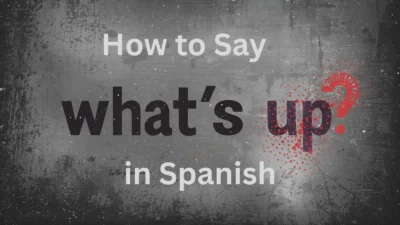How to Say Grace is a meaningful tradition that expresses gratitude before sharing a meal. Whether you want to keep it short, formal, or heartfelt, learning the right words makes the moment more special.
Knowing how to say grace before eating helps you connect with family, friends, or faith in a deeper way. You can also explore different saying grace examples to find the one that feels natural and genuine for your setting.
Saying grace can be simple words of thanks or longer prayers, depending on your culture or belief.By practicing regularly, you’ll feel more confident and authentic when giving thanks before meals.
Say Grace With Examples
Here are 15 meaningful ways to say grace, complete with dialogue examples and the origin or cultural background behind each expression.
15 Saying Grace Examples Table
| # | Saying Grace Example |
|---|---|
| 1 | “Thank you, Lord, for this food and the hands that prepared it.” |
| 2 | “Bless us, O Lord, and these Thy gifts we are about to receive.” |
| 3 | “We are grateful for this meal and the love that surrounds us.” |
| 4 | “Thank you for today’s blessings and the nourishment before us.” |
| 5 | “For this food, family, and friendship, we give thanks.” |
| 6 | “Bless this meal to our bodies and us to Your service.” |
| 7 | “Thank you for the joy of gathering and the gift of food.” |
| 8 | “May this meal bring strength to our bodies and peace to our hearts.” |
| 9 | “We thank You for daily bread and all of life’s blessings.” |
| 10 | “Bless this table, the food upon it, and all those who share it.” |
| 11 | “For the farmers, cooks, and providers, we give gratitude.” |
| 12 | “Thank you for abundance, health, and the love we share.” |
| 13 | “May this meal remind us of kindness and compassion.” |
| 14 | “We are thankful for the food and the fellowship it brings.” |
| 15 | “Bless this food and may it strengthen us to do good in the world.” |
1. Traditional Christian Prayer

Origin:
Rooted in Christian teachings, especially before meals, this prayer is often taught to children.
Example:
👤 User A: Let’s say grace.
👤 User B: “Bless us, O Lord, and these Thy gifts, which we are about to receive from Thy bounty. Amen.”
Use: Common in Christian families and gatherings.
2. “Thank you, God, for this food.”
Origin:
A simplified, child-friendly version of Christian prayer that still expresses gratitude.
Example:
👤 User A: Can I say grace?
👤 User B: Sure!
👤 User A: “Thank you, God, for this food and our time together. Amen.”
Use: Informal, great for kids or casual dinners.
3. Moment of Silence
Origin:
Used by interfaith or secular groups to allow everyone to reflect in their own way.
Example:
👤 User A: Let’s take a moment of silence to give thanks.
👤 (Both pause silently)
Use: Respectful and inclusive in diverse groups.
4. Singing Grace (e.g., “Johnny Appleseed Song”)
Origin:
Popular in summer camps and family gatherings in North America.
Example:
👤 User A: Let’s sing the Johnny Appleseed song!
👤 Everyone: “Oh, the Lord’s been good to me, and so I thank the Lord…”
Use: Fun, lively, and kid-friendly.
5. Jewish Blessing – HaMotzi
Origin:
Traditional Jewish prayer before eating bread.
Example:
👤 User A: Shall we say HaMotzi?
👤 User B: “Baruch atah Adonai, Eloheinu Melech ha’olam, hamotzi lechem min ha’aretz.”
Use: Practiced during Shabbat and meals in Jewish homes.
6. Muslim Dua Before Eating

Origin:
A prophetic teaching in Islam.
Example:
👤 User A: Let’s say Bismillah before we start.
👤 User B: Bismillah.
Use: Said by Muslims before eating — means “In the name of God.”
7. Native American Blessing
Origin:
Many Native American leagues have meal blessings that honor the Earth and nature.
Example:
👤 User A: Let’s give thanks like our ancestors did.
👤 User B: “We give thanks to the Earth, to the water, and to all beings that nourish us.”
Use: Spiritual, nature-focused, and indigenous in tone.
8. Irish Grace
Origin:
Traditional Irish meals often begin with poetic or heartfelt thanks.
Example:
👤 User A: I’ll say the Irish grace.
👤 User B: Go ahead.
👤 User A: “Bless us with food, with family, and love. May we always be grateful.”
Use: Heartfelt and poetic.
9. Catholic Grace – “Bless us, O Lord…”

Origin:
A formal version from the Catholic Church, especially before meals.
Example:
👤 User A: Shall we say the Catholic grace?
👤 User B: Yes. “Bless us, O Lord, and these Thy gifts…”
Use: Structured and traditional for Catholic families.
10. Secular Gratitude Statement
Origin:
Used by non-religious or spiritual-but-not-religious individuals.
Example:
👤 User A: I’d like to say grace in my own way.
👤 User B: Sure.
👤 User A: “We’re thankful for this meal, for those who prepared it, and for each other.”
Use: Inclusive, respectful, and non-religious.
11. “Rub-a-dub-dub, thanks for the grub!”
Origin:
A humorous, rhyming version popular in the U.S. military and among kids.
Example:
👤 User A: Want to say grace?
👤 User B: “Rub-a-dub-dub, thanks for the grub! Yay God!”
Use: Fun, informal, and great with children or at casual meals.
12. Buddhist Mealtime Chant
Origin:
Used in Zen and Theravāda Buddhism to reflect on the food and one’s practice.
Example:
👤 User A: Let’s say the Buddhist meal chant.
👤 User B: “This food is the gift of the whole universe, the earth, the sky, and much hard work…”
Use: Mindful and spiritual.
13. Table Blessing in Latin (e.g., “Benedic, Domine”)
Origin:
Traditional Latin blessing used in monasteries and older Catholic traditions.
Example:
👤 User A: Shall I say it in Latin?
👤 User B: Yes, please.
👤 User A: “Benedic, Domine, nos et haec tua dona…”
Use: Formal, traditional, and solemn.
14. Poetic Grace
Origin:
A modern style using poetry to reflect gratitude and wonder.
Example:
👤 User A: I wrote a short grace.
👤 User B: Let’s hear it.
👤 User A: “For earth and sun and hands that serve, for all we have, and all we preserve — we thank you.”
Use: Artistic and personalized.
15. Hindu Food Prayer – “Brahmarpanam”
Origin:
A Sanskrit prayer from the Bhagavad Gita, acknowledging food as a divine offering.
Example:
👤 User A: Let’s chant Brahmarpanam.
👤 User B: “Brahmārpaṇaṁ Brahma Havir…”
Use: Used by many Hindu families before meals.
FAQs
- What does “saying grace” mean?
It means offering a short prayer before eating. - Is grace only for religious people?
Mostly yes, but anyone can express gratitude before meals. - What’s the simplest grace to say?
“Thank you for this food. Amen.” - Do I need to memorize a long prayer?
No — short and sincere is enough. - Can I say grace silently?
Yes — silent grace is common and respectful. - When is grace usually said?
Right before eating, while everyone is seated. - Should everyone bow their head?
Usually yes, but it’s not forced — just follow the setting. - Can kids say grace?
Yes — kids often lead simple grace at family meals. - What if I don’t know what to say?
Just thank God or express gratitude for the food. - Can grace be said in any language?
Yes — say grace in the language you’re comfortable with.
Conclusion:
Learning how to say grace before eating is a beautiful way to express gratitude and share meaningful moments with others. By exploring different saying grace examples, you can find short, traditional, or modern prayers that fit your personal style. With practice, grace becomes not just words, but a heartfelt expression of thanks.

Sophia Mitchell is a passionate content writer known for creating clear, engaging, and informative articles.
She focuses on delivering well-structured content that is easy for readers to understand and trust.
Sophia Mitchell currently contributes quality writing to repliesnest.com, helping readers find accurate answers quickly.



